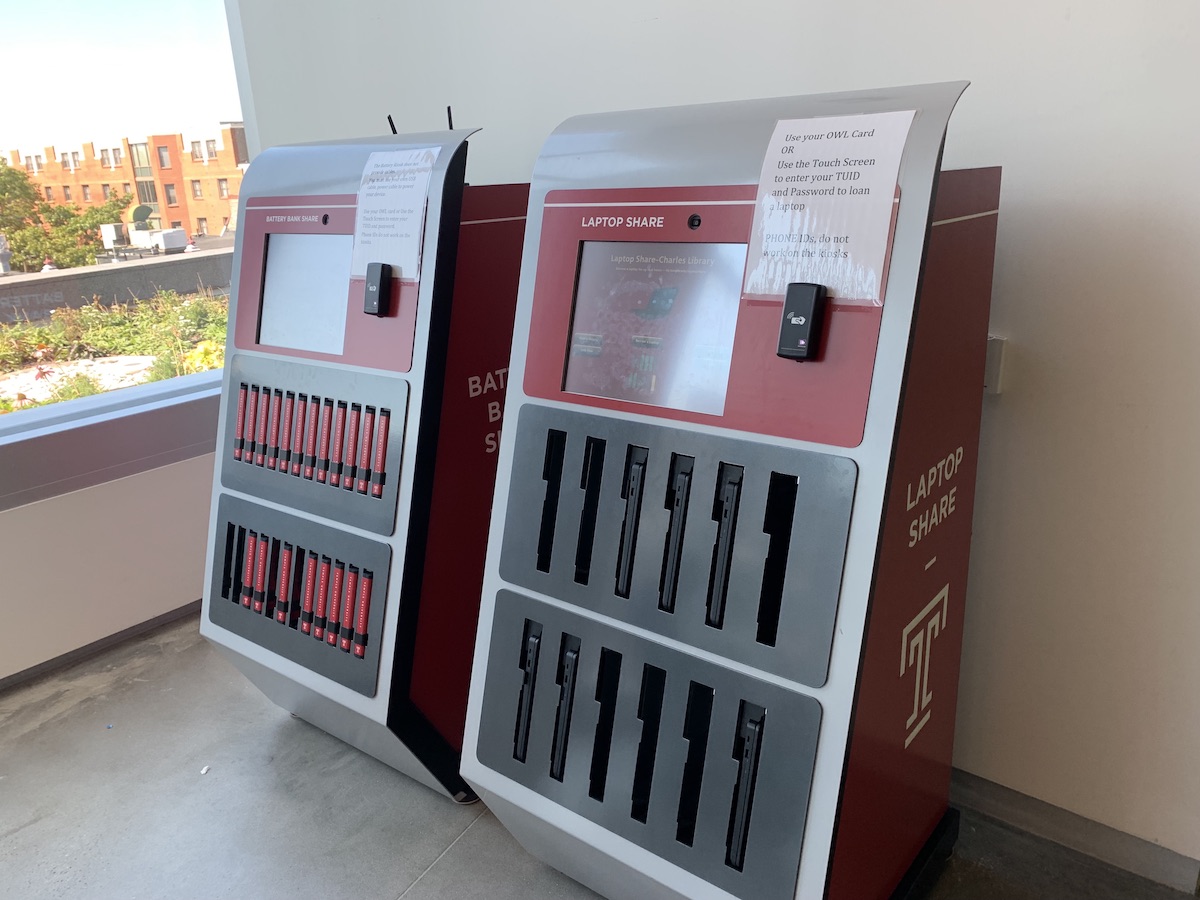When you first enter the lobby of Temple University’s new Charles Library at the center of Main Campus, you may feel you’ve just entered an opera house or a modern art museum.
The soaring, curved ceiling and grand staircase are a huge departure from the university’s old Paley Library, which sits adjacent to the new structure and serves as the College of Public Health’s new home.
At its public opening Thursday, university faculty and building architects touted the new building as the inventive heart and soul of campus.
“It’s always great to work on libraries, because they’re the most innovative people to work with,” Craig Dykers, a founding partner of Snøhetta, the architecture firm that lead the project.
After exploring the building Thursday afternoon, it’s clear to me, a former student, that Temple understands what a modern-day library needs. And it sure makes me wish I could have pushed back graduation by a few years to experience the university as a student in 2019.
One of the most notable features of the library is its automated storage and retrieval system (ASRS), the BookBot, a machine that retrieves requested texts from a storage system with a robotic arm. When someone requests a book, the bot finds the bin in which it’s stored, and delivers it to library staff, where they can grab the book and put it on the holds shelf.
The technology is similar to manufacturing and distribution sites like Amazon fulfillment centers, and a handful of other universities around the country also use the machine, said David Lacy, Temple’s director of library technology and knowledge management.
The system is 10 times as compact as storing books on shelves — which the library still does on its fourth floor.
@TempleLibraries new Book Bot in action! pic.twitter.com/OlO2Trldjf
— Paige Gross ✨ (@By_paigegross) September 20, 2019
Lacy said that the loss of some of the browsable sections of books has been a talking point within the university community.
“They comment that they like browsing the stacks,” he said. “And we tried to account for that, on the fourth floor, where our collection of popular and highly circulated books live.”
The Charles Library also has less computer lab space than Paley did, as nearly every student has a personal computer. But in the main lobby, there’s dedicated computer space for North Philadelphia residents to use.
Scattered throughout the building are laptop and portable battery borrowing stations to accommodate those who do need computer access or outlet-free charging. The lack of charging access was a comment Lacy heard a lot at Paley, and the portable batteries offer the ability to work from anywhere in the building, without being tethered to the wall.
Much of the library’s four floors offer space for students to set up shop to study or work on projects, including reservable breakout rooms. On the third floor is a unique space called the Scholar Studio, where students can work on a range of products related maker tech, machine learning and virtual reality.
Since the library opened its doors to students at the beginning of this semester, it’s been buzzing with activity, seeing about 30,000 visitors each week day, a university official said at its opening Thursday.
The library also has a 24/7 study area, cafe, green roof and programing and event space.
Lacy said it’s been a quick but easy transition, where students have already made the space their own.
“It’s really amazing just to watch how it opened, us taking occupancy, and then the doors opened and the students came in and started figuring it out on their own,” he said.
Check out some pics of Charles Library below.

The view of Charles Library from 13th Street. (Photo by Paige Gross)

Students working at Charles Library. (Photo by Paige Gross)

Laptop and portable battery borrowing stations at Charles Library. (Photo by Paige Gross)

The stacks on Charles Library’s fourth floor. (Photo by Paige Gross)
Before you go...
Please consider supporting Technical.ly to keep our independent journalism strong. Unlike most business-focused media outlets, we don’t have a paywall. Instead, we count on your personal and organizational support.
Join our growing Slack community
Join 5,000 tech professionals and entrepreneurs in our community Slack today!

The person charged in the UnitedHealthcare CEO shooting had a ton of tech connections

The looming TikTok ban doesn’t strike financial fear into the hearts of creators — it’s community they’re worried about

Where are the country’s most vibrant tech and startup communities?


